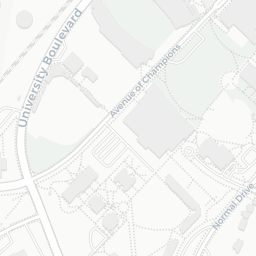Department of Psychology
Clinical/Applied Research (CAR) Group
The Clinical/Applied Research (CAR) Group is a research group coordinated by Dr. Rick Grieve. In general, the research projects focus on aspects of men's body image, including muscle dysmorphia, and sport fan behaviors.
Past Studies
Sports Fans and Gambling (2014)
Professional and collegiate organizations have fought attempts to increase the legalization of sport wagering. One argument presented by those in opposition is that increased legalization would negatively alter the manner in which fans and spectators follow, consume, and react to sporting events. This study was designed to examine possible changes in fandom by investigating fans’ perceptions of the impact of increasing legalized sport wagering on their fan experience, interest in sport, and sport consumption. Participants were recruited from WKU and four other universities completed a questionnaire packet assessing demographics, economic fan motivation, fandom, and perceptions of the impact of increased access to legalized sport gambling. Data analyses indicated that expected impact of gambling on the fan experience were small and generally positive (e.g., a modest increase in interest in sport and consumption) and that these effects were greatest among groups who, historically, are active in sport gambling (e.g., persons higher in economic motivation and sport fandom).
Stroop and Muscle Dysmorphia (2013)
Muscle dysmorphia a disorder in which a person obsesses over not being muscular enough. The purpose of this study was to discover whether the Stroop Test can be used to find symptoms of muscle dysmorphia. Participants first completed a demographics questionnaire. Then they completed a task using E-Prime computer software. Participants were presented with a group of neutral and body-related words in blue, green, yellow, or orange. They indicated the color of the word by pressing the first letter of the color on the keyboard. The reaction time, as well as the number of errors, was measured. Muscle dysmorphia symptoms were also analyzed by having participants complete a short muscle dysmorphia questionnaire. It was hypothesized that participants with higher levels of muscle dysmorphia would have slower reaction times and commit more errors than participants with low levels of muscle dysmorphia. Results revealed that all of the participants responded quickest to body words, followed by neutral words, and lastly, color words.
Intrinsic and Extrinsic Motivation of Basketball Fans (2009)
This study explored the possible link between degree of team identification, either high or low, and the use of internal and external motivation in attending sporting events. Seven different types of motivation that are thought to play a part in fans’ decisions to attend sporting events were assessed: three internal, three external, and amotivation. Two measures of team identification were also used; the Sports Spectator Identification Scale and a modified version of the Sports Motivational Scale. It was hypothesized that highly identified fans will report higher levels of internal motivations to attend games than low identified fans and that low identified fans will report higher levels of external motivations to attend games than highly identified fans. The results partially supported the hypotheses.
A Sample of WKU Alumni Who Were on the Research Team
Michael) Bo Armstrong—PhD Candidate in Industrial/Organizational Psychology at Old Dominion University
Chris Chandler—MA in Clinical Psychology from WKU; works for Alliance Counseling
Zach Crouch—MA in Marriage and Family Therapy from the University of Louisville; Service Coordinator for New Vision in Louisville
Caley Foster—MA in Industrial/Organizational Psychology from WKU
Monte Gannon—EdS in School Psychology from WKU; working in Ohio County
Lesley (Marklin) Higgins—EdS in School Psychology from WKU; working in Todd County
Alex Isbill—EdS Candidate in School Psychology at WKU
Sarah (Gunning) Janes—PsyD in Clinical Psychology from Spalding University; private practice
Crystal (Bonneau) Kaya—MA in Industrial/Organizational Psychology from WKU; in Seattle, WA
Candace Lillpop—Masters Candidate in Social Work at WKU
Morgan (Lee) Littrell—MA in Clinical Psychology from WKU; EdS Candidate at the University of Tennessee, Chattanooga
Amy (Baird) Lynch—MA in Clinical Psychology from WKU; works for Alliance Counseling
Daniel McBride—PhD in Clinical Psychology from Southern Illinois University; private practice in Bowling Green
Britany Morris—MA in Clinical Psychology at WKU
Thomas Reece—MA in Clinical Psychology from WKU; works as an Instructor for WKU
Heather (Kossick) Satterfield—MA in Clinical Psychology from WKU; private practice in Louisville area
Destiny Savage—MA in Student Affairs from WKU
Molly White—MA Candidate in Clinical Psychology from WKU
The Department of Psychology
Gary A. Ransdell Hall, Office 3012
1906 College Heights Blvd. #11030,
Bowling Green, KY 42101-1030
Additional Information




















